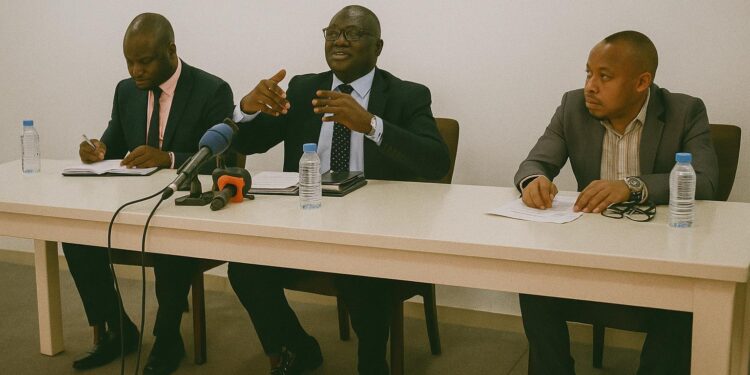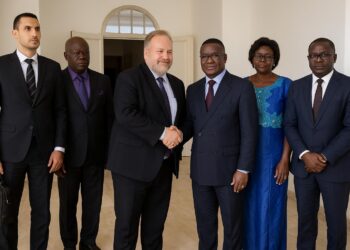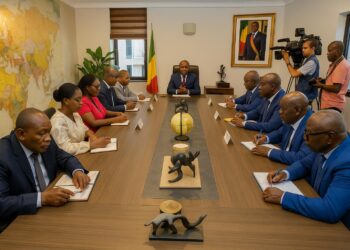A Legislative Sprint in the Heart of Central Africa
The sun-washed press room of the Ministry of Youth and Sports in Brazzaville was unusually animated on 7 July 2025. Flanked by senior advisors, Director-General of Sports Jean Robert Bindelé presented two presidential decrees designed to give operational muscle to the July 2023 Sports Code. The move, applauded by observers from the African Union Sports Council and several resident diplomatic missions, underscores the administration’s intent to translate broad legislative ambition into actionable rules (Ministry of Sports press briefing, 7 July 2025).
Decoding Decree 2025-129 on National Team Selection
At the centre of the first text lies an imperative dear to many emerging sport systems: merit-based, transparent selection. Decree 2025-129 sets out eligibility criteria, calls for independent technical committees, and codifies an appeals mechanism whose timelines mirror those recommended by the Court of Arbitration for Sport. For athletes, this clarity promises to reduce the informal gate-keeping that has occasionally clouded call-ups in the past, a concern echoed across the continent (African Union Sports Council, 2024 bulletin).
Ethics Decree 2025-128: From Fair Play to Governance Integrity
Running in parallel, Decree 2025-128 establishes a comprehensive code of ethics embracing anti-doping, conflict-of-interest disclosures and safeguards against gender-based discrimination. In an era where the African Games and the Francophonie Games offer global visibility, the measure aligns Congo-Brazzaville with the UNESCO International Charter of Physical Education and Sport, updated in 2021 to emphasise human rights and equity (UNESCO 2021 report).
Balancing State Stewardship and Autonomous Federations
Bindelé was careful to frame the decrees not as intrusive instruments but as compacts of shared responsibility. The State retains its stewardship role—particularly in funding junior development programmes—yet federations preserve technical autonomy, providing a dual structure that diplomats recognise as a stabilising compromise. Inspecteur général Charles Ndinga hinted that a forthcoming implementation guide will map financial flows, a transparency step likely to reassure private sponsors wary of opaque governance.
The Athlete at the Centre of the Regulatory Architecture
For many players, the most tangible change will be the articulation of enforceable rights: timely payment of match bonuses, access to medical insurance and guaranteed representation in disciplinary hearings. Gin Clord Samba Samba, Director of Sporting Activities, described the athlete charters embedded in the decrees as “a social contract that elevates performance through dignity”. Regional player unions have already requested workshops to translate legal jargon into locker-room vernacular, a demand the Directorate says it welcomes.
Soft-Power Dividend and International Perception
Sports diplomats consulted in Abuja and Kigali observe that robust domestic regulation often functions as a calling card for international event bidding. With Cameroon and Côte d’Ivoire reaping reputational benefits from recent continental tournaments, Brazzaville’s reforms may similarly enhance its candidacies for youth championships and coaching exchanges. A senior official at the French Development Agency suggested that clearer governance could unlock concessional finance for stadium renovation, illustrating how legal certainty feeds directly into project pipelines.
Economic Undercurrents: Sponsorship, Tax Incentives and Local Industry
Beyond national pride, the decrees carry fiscal implications. The ethics code obliges sponsorship contracts to disclose true beneficial ownership, a requirement mirroring OECD guidance on anti-corruption. Local sportswear manufacturers, interviewed by the Congolese Employers’ Confederation, anticipate a more predictable procurement environment, encouraging import substitution and job creation. Although the Directorate stopped short of announcing tax breaks, the Ministry of Finance is said to be studying models used in Morocco and Rwanda where compliant clubs benefit from reduced VAT on equipment.
Implementation Challenges: Communication and Capacity
Still, legislation is only as effective as its diffusion. The Directorate openly recognises that several federation leaders have yet to circulate the 2023 Sports Code, let alone its 2025 decrees. To bridge the gap, a media partnership with Télé Congo will air explanatory segments during prime-time sports broadcasts, while provincial roadshows are scheduled to begin after the rainy season. International donors have offered technical assistance for digital platforms that would allow athletes in remote departments to download the texts in Lingala, Kituba and French.
Comparative Optics: Congo’s Position in African Sports Law
Academic analysts at the University of Pretoria’s Centre for the Study of Governance note that Congo-Brazzaville now joins a narrow cohort of states—namely Senegal and Kenya—that have embedded selection criteria and ethics provisions in primary legislation rather than federation by-laws. This statutory approach, they argue, provides stronger judicial enforceability while signalling political will for systemic reform.
A Measured Yet Resolute Path Forward
With additional implementing texts promised in the coming months, Brazzaville’s sports-governance overhaul appears set on a trajectory of incremental consolidation. By coupling legal precision with a public outreach campaign, the Directorate seeks to translate policy into practice without alienating grassroots actors. For diplomats and investors, the message is concise: the Republic of Congo is aligning its stadiums and statutes to the same rhythm—one that favours transparency, equity and sustained performance on and off the field.











































